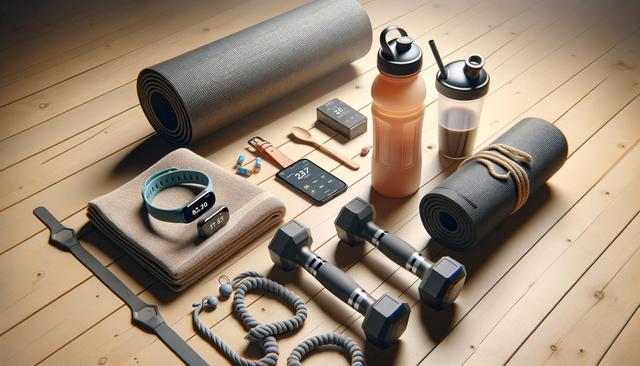Top 5 Wearable Fitness Trackers Ranked in 2025 – Which One Fits Your Goals?
Discover the top wearable fitness trackers of 2025 and find out which one aligns best with your personal fitness goals.

Understanding Wearable Fitness Trackers
Wearable fitness trackers have revolutionized how we approach personal health and wellness. By providing real-time data on our physical activities, these devices empower us to make informed decisions about our fitness routines. Over the years, the technology behind these trackers has evolved significantly, offering more precise metrics and a broader range of features that cater to various fitness needs. The latest models in 2025 boast enhanced capabilities, such as improved heart rate monitoring, GPS tracking, and even hydration levels. As more individuals prioritize their health, understanding the functionalities of these trackers becomes crucial in selecting the right one.
Key Features to Consider
When selecting a wearable fitness tracker, it’s essential to consider features that align with your fitness objectives. Different trackers offer a variety of functionalities, but some key features are universally important:
- Heart Rate Monitoring: Provides insights into cardiovascular fitness and ensures workouts stay within target zones.
- GPS Tracking: Essential for outdoor activities like running and cycling, offering precise distance and pace data.
- Sleep Tracking: Helps monitor sleep patterns to optimize rest and recovery.
- Water Resistance: Important for swimmers or those who may use the device in wet conditions.
- Battery Life: Longer battery life ensures the device can track activities without frequent recharging interruptions.
By focusing on these features, you can better assess which tracker will support your lifestyle and fitness goals.
Top Wearable Fitness Trackers of 2025
The market in 2025 offers numerous exceptional fitness trackers, each with unique strengths. Here are five highly rated options, known for their outstanding performance and reliability:
- Tracker A: Renowned for its exceptional heart rate accuracy and robust design.
- Tracker B: Offers comprehensive health metrics, including stress level monitoring.
- Tracker C: Popular for its sleek design and advanced sleep tracking capabilities.
- Tracker D: Stands out with its extended battery life and detailed workout analytics.
- Tracker E: Known for its user-friendly interface and integration with various health apps.
Each of these trackers brings specific advantages, making them suitable for different user preferences and fitness regimes.
Supplements: Enhancing Your Fitness Journey
In addition to using wearable fitness trackers, supplements can play a significant role in enhancing your fitness journey. They can help fill nutritional gaps and support muscle recovery and growth. Some popular supplements include:
- Protein Supplements: Assist in muscle building and repair post-workout.
- Vitamins and Minerals: Ensure the body functions optimally, supporting overall health.
- Amino Acids: Enhance endurance and reduce fatigue during intense workouts.
- Creatine: Boosts strength and power during high-intensity activities.
While supplements can be beneficial, it’s crucial to approach them with care and consult with a healthcare professional to ensure they align with your health needs and goals.
Conclusion: Choosing the Right Tracker for You
In 2025, wearable fitness trackers have become integral tools for anyone serious about their health and fitness. With the plethora of options available, choosing the right one depends on your specific needs and lifestyle. By understanding the key features and advantages of each tracker, you can make an informed decision that supports your fitness journey. Whether you prioritize heart rate monitoring, GPS tracking, or battery life, the right tracker can provide valuable insights and motivation to achieve your health goals. Coupled with the right supplements, you’ll be well-equipped to enhance your overall fitness and well-being.